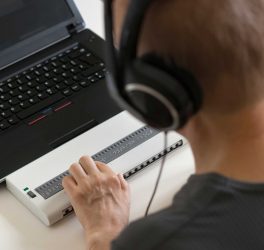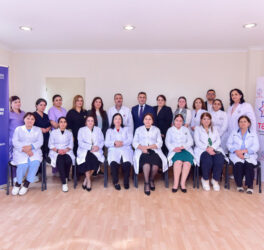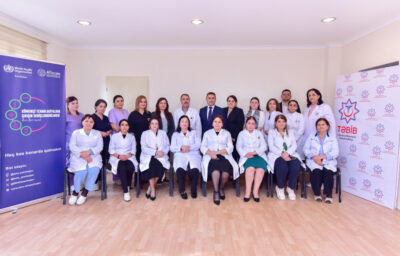
A landmark research partnership will use Artificial Intelligence (AI) to improve how health issues are identified and managed for people with intellectual disabilities.
Life Without Barriers has joined forces with the University of New South Wales and other partners on the Know Me, Support Me project, which will develop an easy-to-use AI tool to help people with intellectual disabilities and their supporters identify health changes early.
Funded through the Medical Research Future Fund, the five-year project aims to leverage a world first AI tool that detects subtle physical and mental health changes to help improve health outcomes for people with intellectual disability.
People with intellectual disabilities may need additional support to access health care, but the signs of physical or mental health decline can be missed due to communication barriers.
Led by Associate Professor Margo Barr from the University of NSW, the Know Me, Support Me project will use the ‘EarlyCare AI’ tool to pick up on health changes, alert caregivers and suggest personalised care plans for treatment and support.
The AI tool will be the first-of-its-kind globally and has the potential to transform health outcomes by detecting problems sooner and guide better health care.
People living with intellectual disabilities, their families, carers and support workers will work alongside researchers and service providers such as Life Without Barriers to design, test and refine the AI tool.
Life Without Barriers chief executive Claire Robbs said Know Me, Support Me is an important research-focused collaboration that will have a real impact on the health and wellbeing of people with intellectual disability.
“More than 600,000 people in Australia live with intellectual disability, and it is incredibly important that this tool is inclusive, practical and shaped by the people who will use it,” Ms Robbs said.
“Our organisation is absolutely committed to leveraging technology in a way that works for people, and this is an exceptional example of ways we can do that in partnership with people with disability and research experts.”
Life Without Barriers’ deputy chief executive of Disability and Mental Health, Leanne Johnson, said as well as analysing the subtle cues that could indicate a health concern, the AI tool will also support communication with health professionals.
“Life Without Barriers is a key partner in supporting the testing and development of the tool with people with intellectual disability we support,” Ms Johnson said.
“It will generate clear summaries of symptoms and progress, ensuring that people with intellectual disability, their families and their health providers all have the right information to make decisions.
“The tool may suggest a GP visit, a check-in with a specialist, or making adjustments to daily routines to support better health, but overall, it will make it much easier for everyone to access the information they need to create health plans together.”








